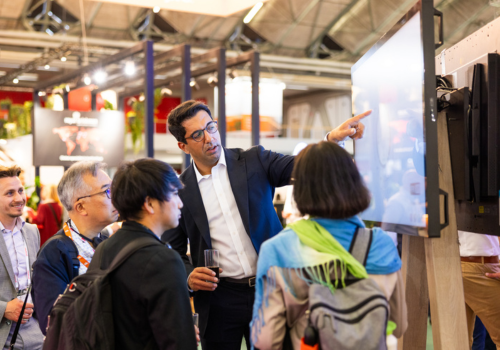
This panel will discuss innovative technologies that have emerged in the UK, and how collaboration accelerate the emergence of solutions to helps the CEA sector face the double challenge posed by economic viability and the need to increase sustainability to reduce the impact on this sector.




Alana is an experienced researcher and practitioner in indoor urban agriculture, with a specialist focus on Technologically Controlled Environment Agriculture (TCEA). With a background spanning academia, applied research, and public engagement, she brings a multidisciplinary approach to food system innovation that bridges science, sustainability, and social impact. Her current work centres on developing equitable and low-emission food production systems through vertical farming and other TCEA technologies, exploring their role in reshaping urban food environments and improving access to nutritious produce.
Alana has played a leading role in designing and running experimental growing systems, including nutrient optimisation trials and circular economy models within indoor farms. Her academic expertise includes greenhouse gas emissions mapping, socio-technical systems analysis, and community-led research. She has contributed to UKRI-funded projects, collaborated internationally, and delivered public engagement programmes that connect science to local communities, schools, and policy stakeholders.
Alana combines strong skills with a deep understanding of the environmental and social innovation dimensions of urban agriculture. She is passionate about using innovation to build healthier, more resilient food systems and continues to contribute to academic publications, stakeholder workshops, and translational research that informs policy and practice.
Marcus Comaschi is the founder and CEO of GyroPlant, a UK-based company advancing next-generation plant cultivation in Controlled Environment Agriculture (CEA), smart at-home hydroponics, and space-based plant research by eliminating traditional single-use substrates. Under Marcus’s leadership, GyroPlant develops clean, reusable, and waste-free substrate technology that enables resilient, future-ready food production systems. Over the past three years, GyroPlant’s novel silicone rubber seed cups have been integrated into more than 125 international R&D projects, supporting a wide range of crops-from peas and strawberries to eucalyptus saplings. Trusted by hydroponic growers and research institutions worldwide, Marcus has also forged collaborations with leading companies such as Dole UK to accelerate sustainable, substrate-free cultivation in both hybrid and indoor plant cultivation systems.
Aurélie Bovi is the Innovation Lead for the Controlled Environment Agriculture sector at the UK Agri-Tech Centre. A molecular biologist and geneticist by training, with 10 years’ experience in laboratories and a specialist technical knowledge in plant sciences, Aurélie has worked in business innovation facilitating roles for over 15 years, engaging and collaborating with UK and international organisations in cross-cutting industry sectors and disciplines to deliver solutions to the agri-food sector. She has built an enviable network of contacts across research, industry, policymakers and government bodies. Through her roles she has gained broad view on the innovation landscape (including funding) and cross-cutting R&D knowledge across an array of industry sectors and technologies relevant to the agrifood and broader bio (circular) economy - including agri-tech; biotechnologies (industrial; synthetic biology); (bio)renewables; big data/AI; indoor farming (horticulture; CEA). Over the past few years, Aurélie has expanded her knowledge and expertise of the horticulture and indoor farming, working closely with stakeholders on the development, delivery and adoption of novel/disruptive technologies, processes, and approaches in those sectors.
Soil scientist and grower turned technology developer with a passion for agriculture, food, and food production.
Experience working across controlled environment agriculture firstly as a user of innovation and technology and now a leader in digitising and innovating in agriculture.
Takes great enjoyment working across multi-disciplinary teams amongst software, hardware bringing what the user needs to the forefront